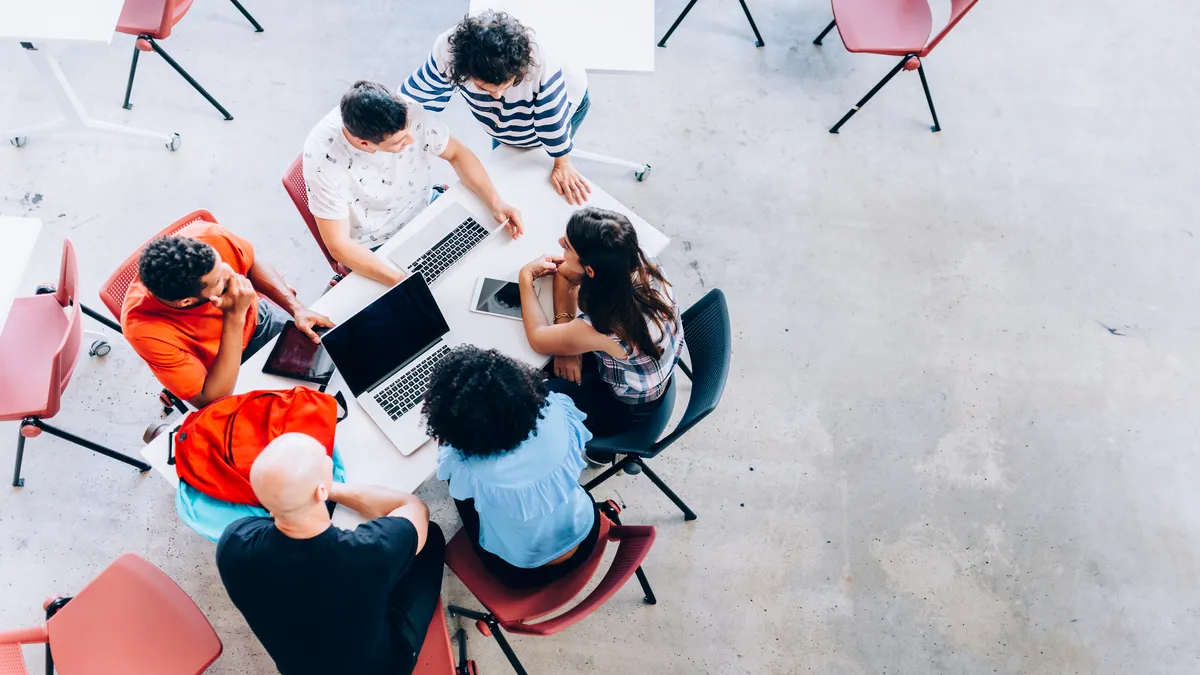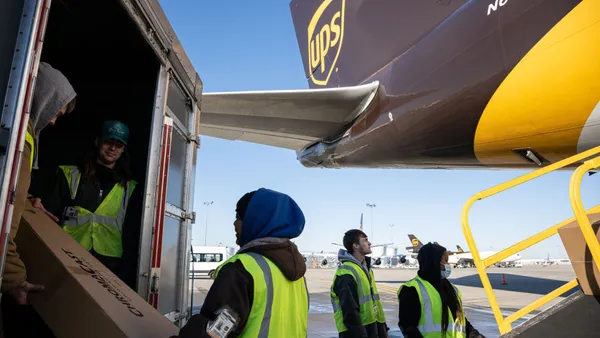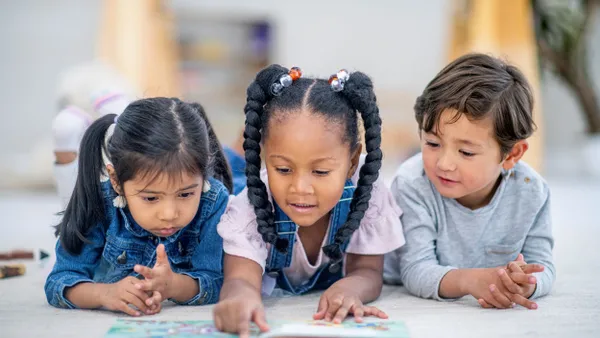Dive Brief:
- Project-based learning depends on students’ abilities to work together and confer. In that collaborative process, children begin to feel comfortable and secure in sharing and also academically challenge themselves with something new, writes education specialist Hollie Bergeron in Edutopia.
- Bergeron used a PBL plan she developed with elementary school teachers in Virginia, helping them build a pollinator habitat in spring 2021. Three 5th grade classes were tasked with different jobs. One group centered their attention on the needs of bees, the second focused on attracting butterflies and other pollinators, and the third started native flora from seeds while researching about other plants needed in the space.
- The PBL experience gave the students a chance to lay some claim to their work — and even direct the project’s completion. The classes painted river rocks, which they placed in the garden, leaving a piece of themselves that stayed after the children graduated.
Dive Insight:
One element of project-based learning requires that students work together to complete an assignment or task. As they collaborate, classes also begin to glean the individual skills of their peers and how each person contributes to the success of an entire group.
In this way, students begin to mirror the environment they may find when they one day enter the workforce where employees must each contribute for the completion and success of a final project. Learning how to collaborate in a group environment while still in school, where students count on each other to finish their portion of a project, helps children strengthen this ability early in their lives.
Collaborative work is also a cornerstone of social-emotional learning where students learn how to develop relationship skills. This skill set can include knowing how to resolve conflicts within group settings and learning how to listen, hear and absorb different perspectives than their own. Students also strengthen their ability to self-regulate. Woven together, these skills can lead to successful and cohesive work as a group.
Educators could support students in developing these skills by assigning in-class or online project-based assignments. At the same time, they can hone in on SEL strategies to ensure children build these competencies for their academic success — and future accomplishments as well.












